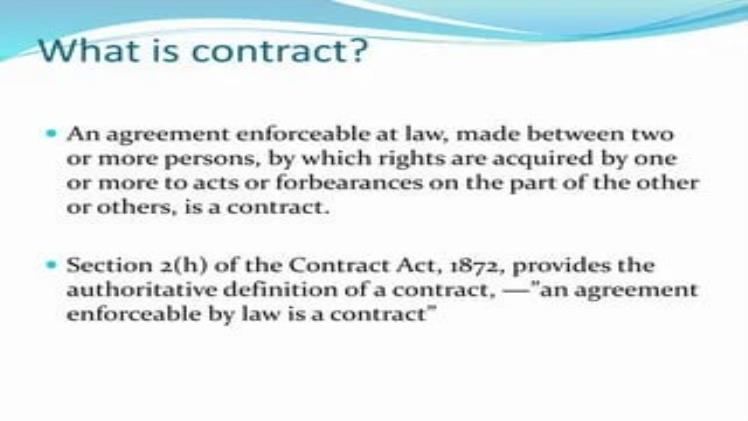The Basics of Contract Law

Contract law refers to the legal obligations and rights of parties involved in contracts, such as marriage or business partnerships. Generally speaking, these agreements are binding and require both parties to act with good faith and honesty in order to fulfill their responsibilities under them.
When one party fails to fulfill their part of a contract, that is known as a breach. This could range from failing to fulfill an obligation on time or refusing to pay the agreed upon price for services rendered.
When determining whether there has been a breach of contract, the first step is to examine the contract itself. This usually done by a judge who will take into account all relevant details and how this breach has impacted one party.
Some of the major types of contractual damages that can be awarded in court include compensatory, specific performance and cancellation damages as well as restitution. All these remedies seek to make the non-breaching party whole again by compensating them for any losses caused by the breaching party’s conduct.
If the damage caused by a breach of contract was predictable, the injured party can seek damages. This rule is complex as it relies on both objective and subjective elements such as what a reasonable person would have anticipated or what both parties expected.
Adequate consideration is a prerequisite for contracts to be legally valid. This can usually be accomplished through gifts, though it can also be accomplished through exchanges of money. There are two primary theories of adequate consideration: bargain theory, which considers how much the receiving party gains from fulfilling their promise; and benefit-detriment theory, which considers how much the giving party loses when they forgo something they would have received had they given up something valuable instead.
Breaching a contract is generally seen as an improper business practice, since it can damage the reputation and standing of both the business or individual involved. Furthermore, financial loss and personal injury may follow for those injured parties who may not be able to resume normal activities until the contract has been settled or terminated by a court ruling.
When a contract is breached, the innocent party must act with good faith to mitigate damages suffered by the injured party. Mitigating damages is an essential aspect of any court case as it helps guarantee that plaintiffs receive fair compensation. Click here to know all About Lifestyle
It is essential for innocent parties to prove they have taken all necessary measures to minimize their damages. If this applies to you, it may be best to enlist the assistance of an experienced lawyer with expertise in civil litigation for assistance with your lawsuit. Visit for all Social News
The law of contract is a complex area that necessitates expert knowledge and skill to comprehend its intricacies. This is especially true if you intend on making a claim against a breached contract.

